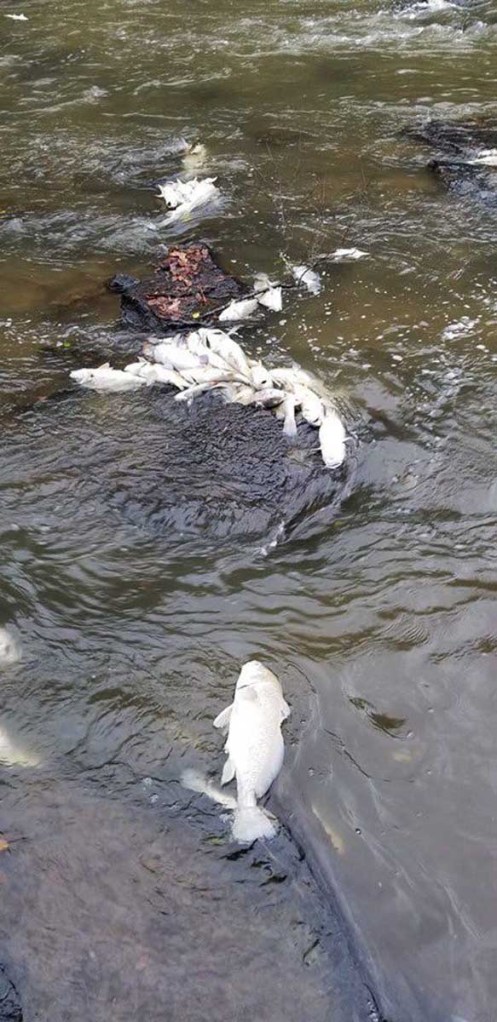State suing Tyson over 2019 fish kill
Published 5:51 pm Thursday, April 30, 2020
The Alabama Attorney General’s office has filed suit against Tyson Farms over the June 2019 fish kill in the Mulberry Fork of the Black Warrior River.
According to the lawsuit, Tyson “engaged in negligent and wanton conduct by causing a public nuisance, committing a trespass to State land, and by committing a trespass to chattel, resulting in the death of various species of fish and other wildlife.”
Trending
The state is seeking unspecified penalties and compensation for the damages caused by the spill.
A statement from Attorney General Steve Marshall said the office wants the state and the community to be compensated for damages done to the environment.
Tyson Foods spokesman Worth Sparkman said the company was disappointed with the state’s decision to file the lawsuit.
Sparkman said the company has tried for months to work with the state, offering to “initiate conservation and community projects including river access in the area of the accidental release.”
On June 6, 2019, the wastewater spill at River Valley Ingredients’ plant near Hanceville dumped hundreds of thousands of gallons of wastewater into the Mulberry Fork of the Black Warrior River and killed at least 175,000 fish along 50 miles of the river.
A spokesman for Tyson Foods, the owner of River Valley Ingredients, said 220,000 gallons of partially treated wastewater gushed into Mulberry Fork and downstream during the incident at the plant, but the Alabama Department of Environmental Management reported that up to 800,000 gallons of wastewater could have leaked into the river.
Trending
According to the company, a temporary pipe that had been installed by a contractor failed and caused the leak into the river.
In the days following the spill ADEM measured high levels of E.coli in the river, but River Valley Ingredients reported that the fish were not killed by any chemicals released into the water, but were instead killed by low levels of oxygen in the water. A week after the spill, the company said the oxygen levels in the water had returned to normal and the river was safe for recreation.
In 2016, the same facility — then operated by American Proteins, Inc. — was fined for killing 40,000 fish after 900 gallons of acid spilled into the river.
Black Warrior Riverkeeper, a nonprofit environmental watch group, has encouraged a stiff fine for River Valley Ingredients, and asked that ADEM force the company and others along the water system to use better technology in an effort to guard against accidents.
“The hidden part of this is that the pathogens can live in the sediment for a long time,” Riverkeeper Nelson Brooke said in. “For Alabamians, we eat a lot of fish and do a lot of hunting. The quality of our natural resources, whether its the water or forests, will ultimately affect us.
“Alabama is in the top tier of freshwater bio-diversity and other natural resources,” Brooke said In July 2019 with an interview with The Times. “But we need more support from the top officeholders, the legislators and governor, to protect these resources. In Alabama, it’s still very politicized in favor of polluters.”
The Black Warrior River drains into portions of 17 counties in Alabama. The area the river drains, known as its watershed, covers 6,276 square miles in Alabama and measures about 300 miles from top to bottom. The Black Warrior River watershed is home to more than 1 million residents and contains 16,145.89 miles of mapped streams, according to Black Water Riverkeeper.
Alabama’s 132,000 miles of rivers and streams contain 332 species of freshwater fishes, and the Black Warrior system has 127 species.
For fishing and recreation, Mulberry Fork has long been popular and is considered one of the state’s best opportunities for whitewater paddling.
A report from Outdoor Industry Association estimates that Alabama outdoor recreation spending generates $7.5 billion in consumer spending. With better protection of natural areas, Brooke said the impact could grow.
Brooke said checking the condition of the water before fishing and boating is important. If water is muddy or has an appearance of slime on top or an odor, it’s best to stay out. A small scratch or cut can become easily infected because of raised levels of bacteria under those conditions.






